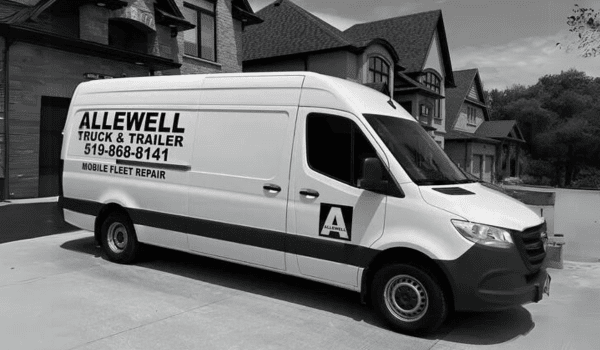If you operate a fleet of commercial vehicles or are involved in the trucking industry, you’ve likely heard the term “fleet maintenance.” But what exactly does it entail, and why is it so essential for your business? In this blog post, we’ll delve into the world of fleet maintenance, exploring its significance, key components, and how it can keep your fleet running smoothly and safely.
Understanding Fleet Maintenance
Fleet maintenance refers to a comprehensive program designed to keep a fleet of commercial vehicles in optimal operating condition. This proactive approach involves a series of scheduled inspections, servicing, and repairs to ensure that each vehicle remains safe, efficient, and reliable.
Key Components of Fleet Maintenance
- Preventative Inspections: One of the core elements of fleet maintenance is conducting regular preventative inspections. These inspections involve a thorough assessment of each vehicle’s critical components, including the engine, transmission, brakes, tires, and more. By identifying potential issues before they become major problems, preventative inspections help prevent breakdowns and costly repairs on the road.
- Scheduled Servicing: Routine servicing is a crucial aspect of fleet maintenance. It involves changing fluids, replacing filters, and performing other essential maintenance tasks at specified intervals. This proactive approach helps extend the lifespan of components and ensures optimal performance.
- Diagnostic Services: Modern commercial vehicles are equipped with advanced technology and complex systems. Fleet maintenance includes the use of diagnostic tools to identify and address any electronic or mechanical issues. Diagnostics play a crucial role in pinpointing problems accurately and efficiently.
- Repair and Replacement: When issues are detected during inspections or diagnostics, timely repairs or component replacements are crucial. Fleet maintenance teams have the expertise and resources to address issues swiftly, minimizing downtime and ensuring the safety of the vehicle.
Why Fleet Maintenance Matters
Now that we’ve covered the key components of fleet maintenance, let’s explore why it matters:
- Safety: The safety of your drivers, cargo, and other road users is paramount. Fleet maintenance helps identify and rectify safety-related issues promptly, reducing the risk of accidents caused by vehicle malfunctions.
- Reliability: Commercial vehicles are the backbone of many businesses. Regular maintenance ensures that your fleet remains reliable and operational, minimizing disruptions to your operations.
- Cost Savings: While fleet maintenance does involve expenses, it can ultimately save you money in the long run. Preventative measures reduce the need for costly emergency repairs and extend the lifespan of your vehicles.
- Compliance: Compliance with regulations and standards is essential in the trucking industry. Regular maintenance helps ensure that your vehicles meet safety and environmental requirements, reducing the risk of fines or legal issues.
Choosing the Right Partner
Effective fleet maintenance requires expertise, resources, and a commitment to excellence. When selecting a partner for fleet maintenance, consider the following:
- Experience: Look for a provider with a proven track record in the industry and experience working with a variety of commercial vehicles.
- Advanced Tools and Technology: Ensure that the maintenance team has access to state-of-the-art diagnostic equipment and tools to address modern vehicle complexities.
- Availability: Consider a provider that offers round-the-clock service to minimize downtime during emergencies.
In conclusion, fleet maintenance is a proactive approach to managing and preserving your fleet of commercial vehicles. By prioritizing safety, reliability, and cost-efficiency, fleet maintenance plays a vital role in the success of your business and the safety of everyone on the road.
At Allewell Truck & Trailer, we specialize in fleet maintenance and offer comprehensive services to keep your commercial vehicles in peak condition. Contact us today to learn more about how our expertise can benefit your fleet.

